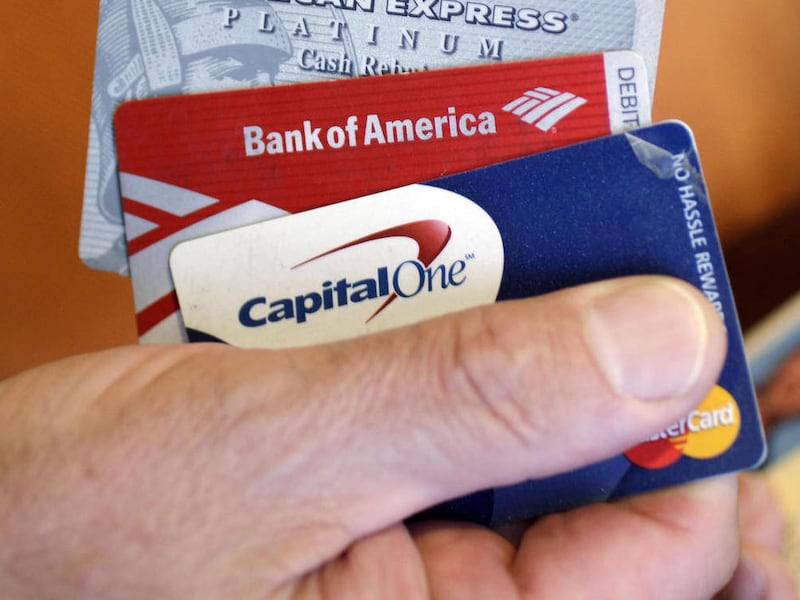Since the end of the Great Recession, banks have made increasingly better offers on credit cards in order to attract customers with good credit scores, but some banks didn’t get the memo.
Out of the 1,000 credit card offers examined, following is the list of worst credit cards to own, according to Card Hub.
First Premier Bank Gold Credit Card (worst card for rebuilding bad credit). Not only is there a $95 processing fee to open an account, the first year has a $75 fee, followed by a $45 annual fee every year after, in addition to a $6.25 fee every month. The interest rate for this card is 36 percent APR.
US Bank College Visa Credit Card (worst credit card for students) Banks usually offer lower rates and more rewards to college students due to high earning potential and the possibility of becoming lifelong customers. This card breaks that pattern with an interest rate of 20.99 percent APR, the highest rate of the student cards that Card Hub examined.
Visa Black Card (worst general-consumer credit card for rewards). Not only does this card charge an annual fee of $495, but it also only offers 1 point in rewards for every dollar spent.
Arvest Bank Classic Credit Card (worst general-consumer card for big-ticket purchases). An introductory rate of 4.9 percent APR for just 6 months is hardly a deal compared to other cards that offer an introductory rate of zero percent APR for 18 months.
UBS Preferred Visa Signature Credit Card (worst general-consumer card for balance transfers). This card has the highest introductory balance transfer APR at 9.99 percent for the least amount of time at 6 months.
US Bank FlexPerks Select Rewards Visa Business Card (worst small business card for rewards). Small business owners tend to charge more than regular customers and expect better rewards. This card fails to meet that expectation with just 0.5 points given for every dollar spent. Since the rewards are points based, U.S. Bank can increase the amount needed for redemption.
Worst Credit Card for Small Business Funding. Regulation preventing card issuers from raising rates on delinquent balances before 60 days don’t apply to business credit cards. While some issuers have adopted that rule anyway, most business cards aren’t good for funding purposes, according to Card Hub.
EMAIL: sparker@desnews.com
TWITTER: @SeanRParker

